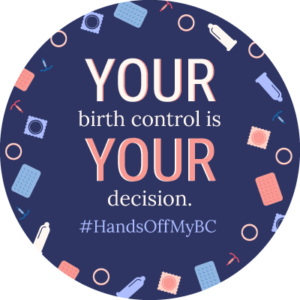 On April 8, 2020, reproductive health care providers filed an amicus brief in Little Sisters of the Poor vs. Commonwealth of Pennsylvania and State of New Jersey making clear why birth control is an essential component of comprehensive health care.
On April 8, 2020, reproductive health care providers filed an amicus brief in Little Sisters of the Poor vs. Commonwealth of Pennsylvania and State of New Jersey making clear why birth control is an essential component of comprehensive health care.
The brief, signed by the American College of Obstetricians and Gynecologists, American Nurses Association, The American Academy of Nursing, Physicians for Reproductive Health, and Nurses for Sexual and Reproductive Health, discusses the benefits of access to contraception and why providing contraceptive coverage at no cost promotes effective usage.
Excerpt from the brief:
The current health-care crisis this nation is facing demonstrates the importance of ensuring that the country’s health care policy not be compromised by political or private interests. The Final Religious Exemption Rule and Final Moral Exemption Rule at issue (the “Final Rules”) are not only capricious and contrary to the contraception coverage requirement of the Patient Protection and Affordable Care Act (ACA), but they also jeopardize the health and well-being of countless women and their families by depriving them of an important component of women’s health care.
The ACA made prevention a priority in the nation’s health care policy by requiring private health insurance plans to cover various essential preventive care services with no additional cost sharing for the patient. Among the preventive services that the ACA requires be covered, without deductible or co-pay, are screenings for various conditions, such as cholesterol tests and colonoscopy screenings; pediatric and adult vaccinations; as well as women’s preventive health services, including FDA approved contraceptives prescribed by a health care provider.
Contraception not only helps to prevent unintended pregnancy, but also helps to protect the health and well-being of women and their children. The benefits of contraception are widely recognized and include improved health and well-being, reduced maternal mortality, health benefits of pregnancy spacing for maternal and child health, female engagement in the work force, and economic self-sufficiency for women. Conversely, as recognized by the Circuit Court, “removing cost free contraceptive coverage can have ramifications on women’s health beyond birth control and unplanned pregnancies.” Pet. App. at 24a. The contraception coverage requirement recognizes that women of childbearing age have unique health needs and that contraception counseling and services are essential components of women’s routine preventive health care.